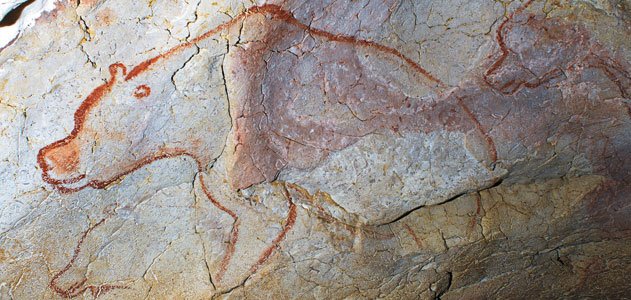The cave bear (Ursus spelaeus), first described in 1774 by Johann Friederich Esper, was a species of bear that lived in Europe during the Pleistocene epoch and became extinct about 25,000 years ago.
The animal weighed between 500 and 1,100 pounds (225-500 kg), was 8.9-11.5 feet (2.7-3.5 m) long and up to 5.6 feet (1.7 m) at the shoulder.
Despite their name, cave bears didn’t actually live in caves but only used them for hibernation.
Nevertheless, the occasional death of animals in various caves in Europe over several tens of thousands of years eventually led to enormous accumulations of bones and teeth.
Several of these bones from Goyet Cave in Belgium have now been examined by Prof. Hervé Bocherens of the Senckenberg Center for Human Evolution and Palaeoenvironment at the University of Tübingen and co-authors.
“We were particularly interested in what exactly the cave bears ate, and whether there is a connection between their diet and their extinction,” Prof. Bocherens said.
To this end, the team conducted isotope studies on the collagen from the bears’ bones.
Collagen is an essential organic component of the connective tissue in bones, teeth, cartilage, tendons, ligaments and the skin.
The examination of the isotope composition of individual amino acids in the collagen shows that cave bears had a strictly herbivorous diet.
“Similar to today’s giant panda, cave bears were therefore extremely inflexible in regard to their food,” said Prof. Bocherens, who is the senior author of a paper detailing the findings in the Journal of Quaternary Science.
“We assume that this unbalanced diet, in combination with the reduced supply of plants during the last Ice Age, ultimately led to the cave bear’s extinction.”
“During the investigation, another interesting aspect came to light. Even the collagen of two cave bear cubs indicated a vegan diet – despite the fact that they were suckled by their mother,” the paleontologists said.
“We interpret this finding as a reflection of the nursing female’s diet.”


